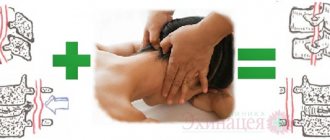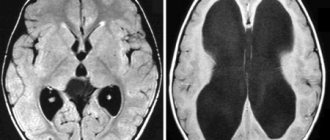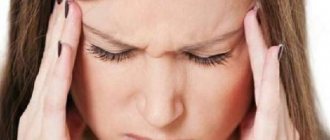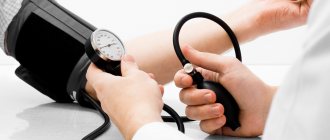Buying good medicine for high blood pressure is not easy. A pharmacist at a pharmacy will rarely help; he will immediately send you to a doctor. Is it really so difficult to recommend a reliable drug at an affordable price? Let's try to understand the types of drugs and the principles of taking them.
Get all the necessary tests at a discount of 10% to 25% using the promotional code “MOESHEALTH”. Visit one of the many conveniently located KDL medical offices https://bit.ly/3gIM9wP or call a nurse for free to collect biomaterial using the innovative laboratory service LifeTime https://bit.ly/3yd9Pj2
Hypertension
Few people in our time have not heard anything about hypertension, or high blood pressure. This is not surprising - after all, in the modern world, every third adult is faced with this problem and is forced to look for ways to solve it.
Blood pressure is considered elevated if its value is 140/90 mmHg. Art. or higher, regardless of the person's age. Most often, high blood pressure is an independent disease called hypertension. But sometimes hypertension is a symptom of some other disease (for example, kidney disease, thyroid disease, adrenal gland disease). In this case, in addition to reducing the numbers, the underlying disease must be treated.
Diet
It is necessary to limit the consumption of salt and foods rich in sodium (fatty meat, seafood, eggs). Alcohol, coffee and energy drinks are also not recommended for consumption. The diet should be enriched with plant fiber and low-fat lactic acid products. It is also necessary to consume more foods rich in potassium (bananas, spinach, garlic).
People with high blood pressure are advised to eat more vegetables and fruits. Photo: prostooleh / freepik.com
Lifestyle
It is strongly recommended to quit smoking. You need to learn to avoid stress and sleep at least 8 hours a day. To strengthen the cardiovascular system, you need to engage in moderate physical activity, since physical inactivity is one of the factors predisposing to the disease. In addition, physical activity combined with a healthy diet helps normalize body weight. This is a relevant question because overweight people are predisposed to hypertension. Nasal sprays should be used with caution - they increase blood pressure (not to mention the ability to cause addiction). It is recommended to take dietary supplements such as L-carnitine, hawthorn extract, coenzyme Q10 and fish oil.
Symptoms
Symptoms that may indicate increased blood pressure include:
- headache;
- dizziness;
- “flies” before the eyes;
- discomfort in the heart area.
If any of them appear, you should measure your blood pressure. If it is higher than normal, you need to take care of reducing it.
Does it happen that nothing bothers a person, but his blood pressure is elevated? Unfortunately, such cases are not uncommon. This is why it is so important to control your blood pressure even when you feel normal. Many people mistakenly think that if there are no symptoms, then there is no need to reduce blood pressure. Indeed, why take pills if you feel good? Alas, the frequency of complications of hypertension does not depend on whether you feel it or not.
Hypertension can cause serious complications.
Dangerous complications:
- myocardial infarction;
- stroke;
- renal failure.
The higher the pressure, the greater the risk of their development.
Causes of intracranial pressure in adults
Increased intracranial pressure (ICP) is not an independent disease, but a syndrome.
Doctors sometimes call it intracranial hypertension. Pressure inside the brain (similar to arterial pressure) fluctuates when the head is tilted back and forth or to the sides, during physical activity or sneezing. But it can increase to serious numbers in case of pathologies, and there are many of them. “ICP (intracranial pressure) occurs as a result of an increase in the volume of intracranial contents (cerebrospinal fluid or cerebrospinal fluid), tissue fluid, or the appearance of foreign tissue (tumors, cysts, brain abscess), says neurologist Polina Petrosyan.
In addition, the causes of increased ICP may be:
- traumatic brain injury;
- tumor;
- intracerebral hemorrhage;
- neuroinfections (encephalitis, meningitis).
“The cause may also be long-term use of drugs from the group of hormonal contraceptives, corticosteroids or antibiotics,” adds Dr. Polina Petrosyan.
Pressure increases because fluid is either produced in excess (for example, due to an infection that has spread to the brain or its membranes), or because fluid flows out of the skull through special pathways less easily. If volumetric processes develop in the cranial cavity (for example, a tumor grows or hemorrhage occurs), there will be less space for fluid, and its pressure will also increase.
Treatment
Almost all patients with hypertension need blood pressure lowering medications. At the initial stage of the disease, with a slight increase in blood pressure, it is sometimes possible to bring the indicators back to normal by changing lifestyle (diet, weight loss, stress management, physical activity). But most patients still require constant medication. If treatment is stopped, high blood pressure, and along with it unpleasant symptoms, and the risk of complications return. During treatment, it is very important to monitor the level of pressure and keep a diary by the patient in which his indicators are recorded. This allows you to select the optimal treatment and accurately assess its effect.
Nowadays, a large number of drugs have been created that reduce blood pressure. Let's look at the main groups of these drugs.
ACE inhibitors
- Enap;
- Diroton;
- Prestarium A;
- Hartil.
They suppress (inhibit) one of the enzymes involved in raising blood pressure and are often used as the first choice drugs when starting treatment for hypertension.
Advantages of this group:
- do not affect the pulse rate (can be prescribed for any pulse rate);
- do not cause an increase in cholesterol and blood sugar levels;
- for diabetes mellitus and chronic kidney disease, they not only reduce blood pressure, but also prevent the development of renal failure;
- these medications are also effective for chronic heart failure.
But this group is not suitable for pregnant (or planning pregnancy) women - it can have a negative effect on the fetus. Also, sometimes, while taking these medications, a dry cough appears. If it greatly bothers the patient, it is necessary to replace it with a drug from another group.
ACE inhibitors are not suitable for pregnant women, because negatively affect the fetus.
Angiotensin receptor blockers (ARBs).
- Lozap;
- Valsacor;
- Aprovel;
- Edarby.
Their mechanism of action is close to the drugs of the previous group, but blocks the process at a different level. In general, they have the same properties as ACE inhibitors. They are often prescribed if a dry cough develops while taking ACE inhibitors, since this group does not have such a side effect.
Beta blockers
- Concor;
- Betalok;
- Nebilet.
They reduce blood pressure by acting on beta-adrenergic receptors of the heart and blood vessels. In addition to lowering blood pressure, these medications slow down the heart rate. They are preferable if you are prone to rapid heartbeats, but if your heart rate is initially low, they are not recommended. When selecting a dose and treatment, pulse control is required (it should be at least 50 beats per minute).
They are also recommended for use when hypertension is combined with coronary heart disease or chronic heart failure. And when combined with bronchial asthma or chronic obstructive pulmonary disease (COPD), they should be used with caution - bronchospasm may increase.
Calcium antagonists
They reduce blood pressure by affecting the calcium channels of cells. They can be used when hypertension is combined with bronchial asthma, COPD, diabetes mellitus, and kidney disease.
Diltiazem, Verapamil, Isoptin (extended form) - also reduce heart rate and can be used as an alternative to beta blockers.
Cordaflex, Normodipin, Lerkamen - without reducing the pulse, they have a vasodilating effect. They are especially effective in increasing diastolic (“bottom”) pressure.
Diuretics
- Hypothiazide;
- Indapamide;
- Arifon-retard;
- Indapamide retard.
Remove excess water and sodium from the body. Especially relevant for people with edema or signs of heart failure. Long-acting indapamide has the least pronounced diuretic effect and minimal side effects, but at the same time it stabilizes blood pressure well.
Diuretics are suitable for people with signs of heart failure.
This group should be used with caution if blood sugar and uric acid levels are elevated.
Centrally acting drugs
- Physiotens;
- Albarel.
They reduce blood pressure by acting on receptors in the brain. As a rule, they are added to combinations of other drugs if the desired effect cannot be achieved.
Combined products
When treating hypertension, combinations of several active ingredients are often used. According to research, the use of combinations is more effective than simply increasing the dose of the drug and causes fewer side effects. Many medications, when used together, complement and enhance each other's effect. That is why many combination drugs have been created, when one tablet contains 2, and sometimes three drugs at once. Their use is both effective and very convenient.
Combinations of 2 drugs:
- ACE inhibitor + diuretic: Enap N, co-diroton, noliprel;
- ACE inhibitor + calcium antagonist: tarka, dalneva, equator;
- angiotensin receptor blocker + diuretic: lozap plus, valsacor N, edarbi clo;
- angiotensin receptor blocker + calcium antagonist: lortenza, vamloset, aprovasc;
- beta blocker + calcium antagonist: Concor AM, Logimax.
Combinations of 3 drugs:
- ACE inhibitor + diuretic + calcium antagonist: co-dalneva, triplixam;
- angiotensin receptor blocker + diuretic + calcium antagonist: co-vamloset, Co-Exforge.
When selecting treatment for hypertension, they usually start with small doses and, if necessary, gradually increase them. You cannot sharply reduce blood pressure to normal if it is initially very high. It is better to first stabilize it at a lower level (for example, if the initial blood pressure is more than 180/100, reach values not exceeding 150-160/90 mm Hg), and after some time try to intensify therapy, taking into account its tolerability.
Finding the optimal treatment is not easy. Even doctors need time for this. The patient's active participation in keeping a diary and taking medications regularly is mandatory. Changing the treatment regimen on your own or stopping it can lead to unpleasant consequences, including complications of hypertension (heart attacks, strokes). If for some reason you change your medication intake, do not hide it from your doctor. Only together can we achieve sustainable results in treatment.
Urgent Care
If the pressure is significantly elevated, the patient should first calm down, and then ensure a flow of fresh air into the room and take a comfortable position. Clothes should be loose, special attention should be paid to the collar.
The sequence of actions to alleviate hypertension is very simple:
- Calm down, don't panic.
- Organize access to fresh air (open a window, go outside).
- Optimize breathing (deep breath, hold, exhale).
- Apply a cold compress to the forehead, temples and back of the neck.
- Take a sedative: 50 to 100 drops of Valocordin or Corvalol, extract or tincture of motherwort (valerian).
- Wait 20-30 minutes, measure the pressure again.
- In case of high blood pressure, take medicine to lower blood pressure (for example, from the group of ACE blockers).
When to call an ambulance
If 30-40 minutes after taking the medication the condition does not improve, you should call an ambulance. Indications for calling are blood pressure of 180/110 or higher, shortness of breath, headache, nausea, rapid heartbeat and chest pain. You need to call 003 or 112 and describe all the symptoms to the dispatcher in detail.
Injections for hypertension
Injections are used for hypertensive crises (a serious condition caused by an increase in blood pressure from 180/110 and above) to quickly reduce blood pressure. During the Soviet Union, the favorite remedy for emergency doctors in such situations was a combination of papaverine, metamizole sodium and diphenhydramine, known as “troychatka.” It is still used today, but modern cardiologists insist that there is no need to inject this mixture into everyone: first of all, it is important to find out the reason for the sharp increase in blood pressure - this will help to choose the right drug.
For example, if the attack was provoked by severe nervous tension, then the drug of choice will be diazepam (administered both intramuscularly and intravenously). In case of a convulsive form of crisis, a so-called hot injection - magnesium sulfate (slowly intravenously) is added to diazepam.
A hypertensive crisis can be caused by excess fluid accumulation (edematous, or water-salt form). In this case, an injection of furosemide is given in combination with nifedipine (sublingually).
In the neurovegetative form (adrenal crisis), sublingual nifedipine is usually used first, and in the absence of the expected effect, an injection of clonidine is given.
Preventing headaches
To prevent headaches and increased upper and lower blood pressure, you must follow the rules of prevention:
- Maintaining a healthy lifestyle is mandatory.
- Eat right (exclude salty, fatty, spicy, fried foods), avoid excess body weight.
- It is always necessary to treat infectious and inflammatory diseases in a timely manner and prevent them from becoming chronic.
- Excessive physical activity is not allowed.
- It is best to avoid bad habits.
- Moderate exercise keeps blood vessels in good condition.
Activities that strengthen the immune system are no less important. Hardening the body, gymnastics, and vitamins allow you to resist the effects of unfavorable factors.
Diagnostics
It is extremely difficult to suspect an increase in ICP based on external signs.
The doctor must know all the complaints and those facts from life that preceded the symptoms. This could be a hypertensive crisis, head injury, severe infection, kidney or liver problems. In order to confirm the diagnosis, the doctor will prescribe a number of studies to the patient: CT or MRI of the brain to evaluate the structure of all tissues of the skull, note the condition of the ventricles of the brain where cerebrospinal fluid accumulates;
- echoencephaloscopy to determine brain function;
- Ultrasound of the brain (mainly in children through the fontanelle);
- examination of the condition of the fundus by an ophthalmologist;
- spinal cord puncture with measurement of the pressure of the escaping cerebrospinal fluid (the cerebrospinal fluid itself is taken for analysis).
What causes hypotension?
If you suddenly change your body position
Get up quickly or, for example, sit up sharply in bed. This is called orthostatic hypotension. When a person assumes a vertical position, blood, under the influence of gravity, rushes to the legs and abdominal area, and the pressure in the vessels drops. In order to raise blood from the legs and normalize blood pressure, the autonomic nervous system increases the heart rate and constricts blood vessels.
Healthy people do not experience discomfort, since this mechanism works very quickly. But in some cases, the autonomic nervous system fails. As a result, the pressure drops, the blood does not have time to rise from the legs, the brain lacks oxygen, and symptoms of hypotension appear. This happens, for example, in pregnant women, in people with certain diseases such as diabetes, and in every fifth elderly person.
Sometimes healthy people experience similar sensations, for example due to heat, and there is nothing to worry about. But if you feel dizzy every time you change position, you need to see a doctor.
If you eat
After eating, blood rushes to the gastrointestinal tract, and to prevent pressure from dropping too much, the autonomic nervous system constricts blood vessels and increases the heart rate. However, in about a third of older people it cannot cope with such a load. This condition is called postprandial hypotension. If this happens, you need the help of a doctor.
If you grow too fast
As you might guess, the problem most often occurs in children and adolescents: due to rapid growth, a malfunction occurs in the functioning of the autonomic nervous system. As a result, when you change your posture or bend over, symptoms such as dizziness and fainting appear. This is called nerve-mediated hypotension. Children usually outgrow the problem, and hypotension goes away on its own.
But sometimes neurally mediated hypotension is a sign of serious neurological diseases. In this case, the person needs the help of a doctor.
If you get sick
Blood pressure may drop in people who are dehydrated, those who have had shock, diabetics, and patients with arrhythmias and heart failure. In this situation, doctors seek to cure or control the disease that is causing hypotension.
If you take certain medications
Sometimes hypotension is a side effect of anti-anxiety medications, diuretics, painkillers, or blood pressure pills. In order to solve the problem, it is usually enough for the doctor to adjust the dose of the medication.
Prevention of intracranial pressure in adults at home
Prevention of increased ICP is the prevention of various diseases affecting the cranial cavity.
This includes protection against infections that can affect the brain - vaccination against meningococcal and hemophilus influenzae infections, influenza vaccination. It is also necessary to treat various pathologies that can affect brain function. General recommendations are simple:
- follow a daily routine and lead the healthiest lifestyle possible;
- avoid head injuries;
- protect yourself from stress and nervous overload;
- Get enough sleep.










